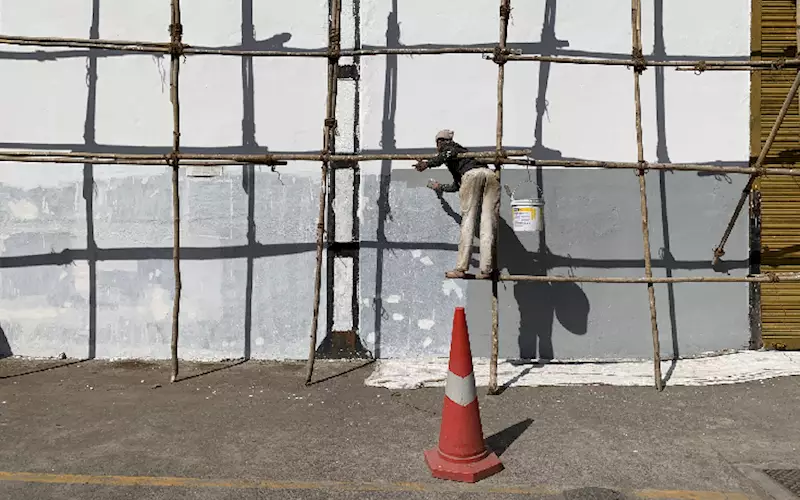Livelihoods of workforce in limbo, but centre eyes world trade disruption post crisis
As job losses escalate, nearly half of the global workforce is at risk of losing livelihoods, according to the International Labour Organization (ILO). India, however, is looking to capture a significant share in the world trade.
30 Apr 2020 | By Aultrin Vijay
The latest ILO data on the labour market impact of the Covid-19 pandemic reveals the devastating effect on workers in the informal economy and on hundreds of millions of enterprises worldwide. The continued sharp decline in working hours globally due to the Covid-19 outbreak means that 1.6 billion workers in the informal economy – that is nearly half of the global workforce – stand in immediate danger of having their livelihoods destroyed, warns ILO.
According to the ILO Monitor third edition: COVID-19 and the world of work, the drop in working hours in the second quarter of 2020 is expected to be significantly worse than previously estimated.
"As a result of the economic crisis created by the pandemic, almost 1.6 billion informal economy workers (representing the most vulnerable in the labour market), out of a worldwide total of two billion and a global workforce of 3.3 billion, have suffered massive damage to their capacity to earn a living. This is due to lockdown measures and/or because they work in the hardest-hit sectors," the report stated.
The first month of the crisis is estimated to have resulted in a drop of 60% in the income of informal workers globally. Without alternative income sources, these workers and their families will have no means to survive, the report suggested.
Enterprises at risk
Worldwide, more than 436 million enterprises face high risks of serious disruption. These enterprises are operating in the hardest-hit economic sectors, including some 232 million in wholesale and retail, 111 million in manufacturing, 51 million in accommodation and food services, and 42 million in real estate and other business activities.
"The ILO calls for urgent, targeted and flexible measures to support workers and businesses, particularly smaller enterprises, those in the informal economy and others who are vulnerable," the report stated.
India sees export opportunities
However, Piyush Goyal, minister of commerce and industry and railways, said that India's focus should be on harnessing the strengths and competitive advantages in specific sectors in the world markets.
In a discussion with various export promotion councils (EPC), Goyal expected a perceptible change in the global supply chains in the post-Covid era, and asked Indian industrialists and exporters to focus on capturing significant share in world trade. He assured them that "the Government will be a proactive supporter and facilitator in their efforts, and the Indian missions abroad can play an important role in that". He also noted that incentives can be given, but they have to be justified, reasonable, and WTO-compliant.
Goyal further said that the ministry was working on identifying the specific sectors, which can be taken forward in the immediate future for the exports purpose. He exhorted the EPCs to undertake brainstorming sessions with its members, and come up with actionable, big-ticket ideas.
ILO's economic reactivation strategy
According to ILO, measures for economic reactivation should follow a job-rich approach, backed by stronger employment policies and institutions, better-resourced and comprehensive social protection systems. International coordination on stimulus packages and debt relief measures will also be critical to making recovery effective and sustainable. International labour standards, which already enjoy tripartite consensus, can provide a framework.
“As the pandemic and the jobs crisis evolve, the need to protect the most vulnerable becomes even more urgent,” said ILO director-general Guy Ryder. “For millions of workers, no income means no food, no security and no future. Millions of businesses around the world are barely breathing. They have no savings or access to credit. These are the real faces of the world of work. If we don’t help them now, they will simply perish.”
Govt eases inter-state movement restrictions
The Centre on 29 April released a notification permitting the movement of stranded migrant workers, pilgrims, tourists, and other people by road.
"They would be allowed to move between one State/Union Territory to another, after the concerned states consult each other and mutually agree to," it stated.
However, such people would be assessed by the local health authorities on arrival at their destination, and kept in home quarantine, unless the assessment requires keeping the person in institutional quarantine. "They would be kept under watch with periodic health check-ups," it said.
Blow to empty manufacturing plants
Large manufacturing plants that have not been operational since the lockdown would risk losing its insurance cover if the Covid-19 induced restrictions get extended beyond May 3. Risk managers are in a panic as insurers have reminded them of a clause whereby the cover ceases if plants are unoccupied for over a month and said that they will give a one-time dispensation and allow coverage until May 3
The 'unoccupied premises' clause is present in every fire insurance policy. This fire clause is aimed at ensuring that companies do not leave plants unattended, thereby increasing the risk of loss. However, the clause does not mention a lockdown situation.














 See All
See All